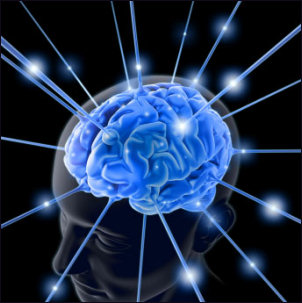In 10 years time we will be able to put an entire years worth of our waking experience-in digital quality-on a laptop. By 2039 that could extend to a record of our entire lives. The technology involved in organising memories to flow in a story form, but to also cross-reference, as well as include senses such as visual, audio and even smell, is one of a number of Grand Challenges identified by a coalition of IT and scientific organisations.
 Sponsored by the UK Computing Research Committee (UKCRC), and backed by the BCS (British Computer Society) the Engineering and Physical Science Research Council (EPSRC), IET and the Council of Professors and Heads of Computing (CPHC), the Grand Challenges project addresses some of the main environmental, social and economic scenarios facing society in the future, and how science and IT could be used to address these.
Sponsored by the UK Computing Research Committee (UKCRC), and backed by the BCS (British Computer Society) the Engineering and Physical Science Research Council (EPSRC), IET and the Council of Professors and Heads of Computing (CPHC), the Grand Challenges project addresses some of the main environmental, social and economic scenarios facing society in the future, and how science and IT could be used to address these.
One such challenge is to map in computational terms the external and internal functions of a fully-grown plant that would help developing and other countries understand the pressing issue of crop failure. Others include bringing the past to life, virtually, to expose the circumstances and motivation of historical figures. Or, to fully utilise the digital economy to help the UKs competitiveness in the face of powerful economies around the globe.
The idea behind the nine Challenges is to pursue goals that have been identified as being possible, but will take one or two decades to arrive. A third strand is to excite and engage youngsters, who will fully benefit from this new world. Indeed, one of the challenges is to ensure the millions of mobile and other devices that will by then exist around the world are designed for the benefit of society and the economy, and ultimately, improve peoples quality of life.
Professor Dame Wendy Hall, co-editor of the report Grand Challenges in Computing Research 2008, and past president of the BCS, says: Technology is all around us, and increasingly underpins everyday life, but what many people still have to fully appreciate is the role technology will have in the future, combating some of the biggest challenges facing us as a society. IT in the future, with its effect on our infrastructure, food, climate and personal lives will have as great an impact on the way we live as the Industrial Revolution did towards the end of the nineteenth century.
If we think technology has changed our lives so far - we have seen nothing yet compared with whats in store, and youngsters thinking about what sort of career they want as adults could choose to be part of some of the greatest changes known to society for more than 200 years.
The project was started in 2004, and three Grand Challenges in Computing Research conferences have been held since then to monitor progress, add or modify goals.
For a full list of the grand challenges, see, http://www.ukcrc.org.uk/grand_challenges/news/challenge08.cfm

Add a Comment
No messages on this article yet